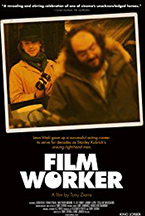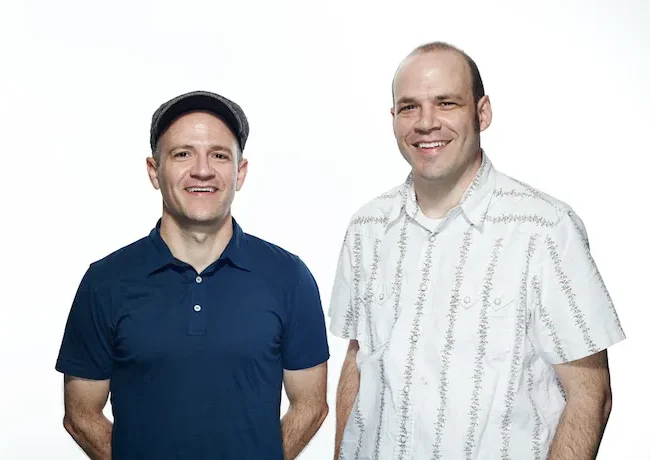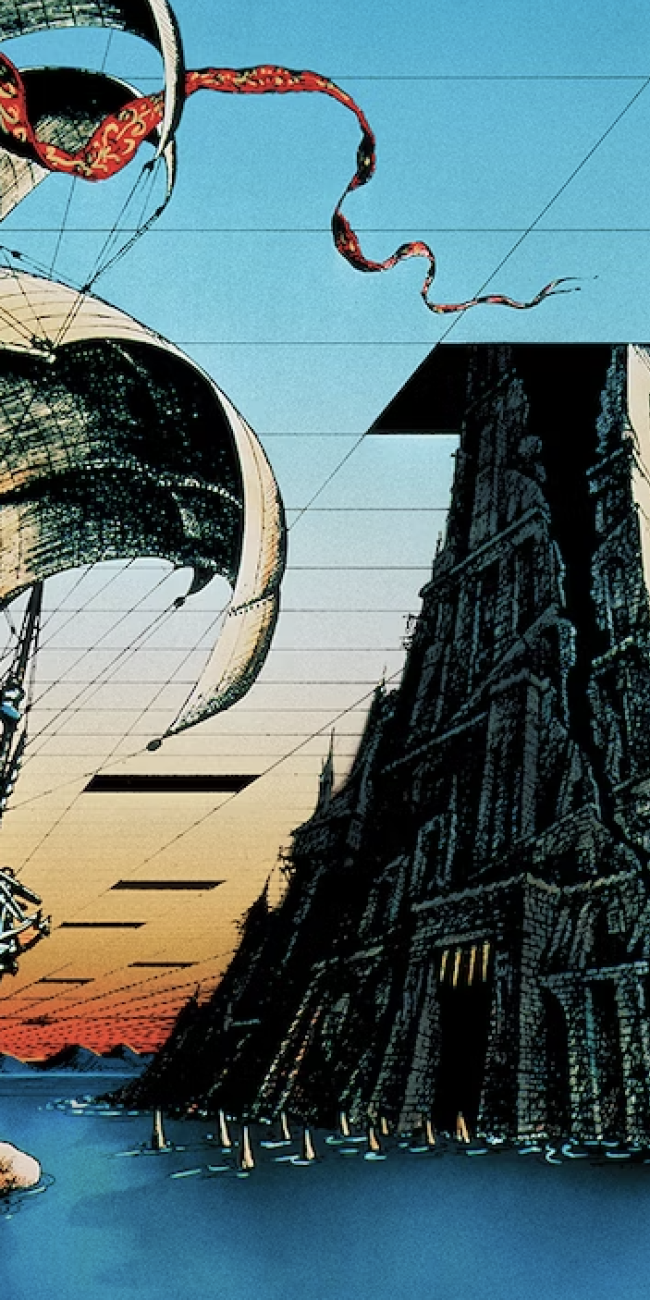
(Filmworker, Tony Zierra’s fascinating documentary on Stanley Kubrick’s essential, longtime collaborator Leon Vitali is in theaters now.)
Beyond his not-so-great, awkward first film, legendary director Stanley Kubrick (1928-1999) made 12 additional narrative features, many of them celebrated as cinematic masterpieces, both upon their release and today, including Dr. Strangelove or: How I Learned to Stop Worrying and Love the Bomb (1964), 2001: A Space Odyssey (1968), A Clockwork Orange (1971), Barry Lyndon (1975) and The Shining (1980). Though Kubrick developed a reputation as a bit of recluse, anyone who knows anything about the process of filmmaking should know how impossible it would be to create movies on the scale that he did without at least some ability to interact with, and manage, large groups of people; cinema (of the fiction variety, especially) is simply too collaborative an art form to be done solo. In Filmworker, a new documentary from Tony Zierra (My Big Break), we meet one such collaborator, the heretofore mostly unsung Leon Vitali. Though imperfectly shot and assembled, the film is ultimately an engrossing tribute to a man without whom Kubrick’s final quarter-century might have proceeded quite differently.
Let’s start with what disappoints. Almost all the footage Zierra and his crew have shot expressly for Filmworker – the talking heads, above all – is strangely over-exposed or poorly composed, as if, having expended the human capital necessary to gather the folks who could speak to Kubrick’s achievements, no one had any creativity left to photograph the images properly. Given the precision with which Kubrick lovingly crafted his own frames, it’s very jarring to see, especially when we cut back and forth between the interviews and scenes from movies past. The wonderful thing about watching a compelling story, however, is that if the through line holds our interest, these types of details – important in and of themselves – lose significance over time. By the conclusion of Filmworker, my initial repulsion (yes, I had a strong, negative reaction) had mellowed, and I was immersed in the movie. Thank you, Leon!
For it’s all about Vitali. Born in 1948, he was a young British actor in late-1960s Swinging London when he first saw 2001: A Space Odyssey and was blown away (as were many). Upon seeing the (to him) equally powerfully A Clockwork Orange a few years later, Vitali knew that he had to work with Kubrick, and so auditioned for the maestro’s next film, Barry Lyndon, in which he was promptly cast as Lord Bullingdon, the titular character’s reluctantly adopted son who eventually doles out Lyndon’s comeuppance. Both director and performer hit it off, the latter letting the former know that he desired nothing more than to work for him and learn the art of cinema at his feet. Soon, after a few other acting gigs where Vitali freelanced in behind-the-scenes roles, the two men reunited during the pre-production stage of The Shining. From that point on, the actor would become an assistant – or “filmworker,” as he called himself – to the filmmaker, performing any and all tasks required. No more a rising star, he was helpmate, pupil and slave, and content in his new life. Odd, but true.
Very much still alive and vibrant, Vitali is our guide, though his tale is told with support from many others, including his Lyndon co-star Ryan O’Neal, his own children and siblings, and more. It’s a fascinating exploration of art, megalomania, servitude and service that is always deeply profound and moving. Sure to please fans of Kubrick’s work, the movie is by no means solely for cinephiles, as the specificity of Vitali’s life and mission lead to larger truths about the human condition. Yes, the visuals could be stronger (so much stronger), but the narrative is mesmerizing. May Leon continue to be the champion of the cause to which he has devoted so much of his life: the brilliant work of a brilliant, if demanding, filmmaker. Personally, I don’t understand why one would choose such a subservient path, but if he’s happy, then who am I to judge? Filmworkers of the world, unite!
– Christopher Llewellyn Reed (@ChrisReedFilm)











